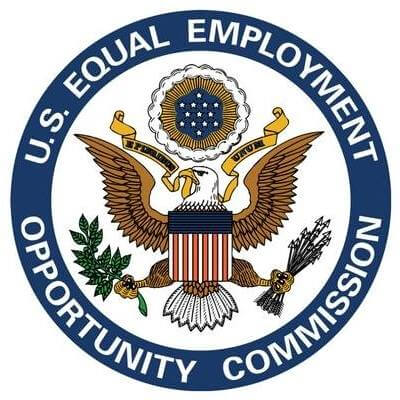The EEOC and Discrimination
By Commissioner Chai Feldblum, U.S. Equal Employment Opportunity Commission
 Today marks the 28th anniversary of the Americans with Disabilities Act (ADA). The ADA prohibits discrimination based on disability and establishes protections against discrimination for people with disabilities. Since it was passed in 1990, the ADA has led to accessibility requirements for public spaces and reasonable accommodations for workers with disabilities. Prior to being appointed a commissioner of the U.S. Equal Employment Opportunity Commission (EEOC), Chai Feldblum was the lead attorney on the team who drafted the ADA. Today, she discusses discrimination in the workplace and what you can do when you think you’ve been discriminated against as a jobseeker or employee.
Today marks the 28th anniversary of the Americans with Disabilities Act (ADA). The ADA prohibits discrimination based on disability and establishes protections against discrimination for people with disabilities. Since it was passed in 1990, the ADA has led to accessibility requirements for public spaces and reasonable accommodations for workers with disabilities. Prior to being appointed a commissioner of the U.S. Equal Employment Opportunity Commission (EEOC), Chai Feldblum was the lead attorney on the team who drafted the ADA. Today, she discusses discrimination in the workplace and what you can do when you think you’ve been discriminated against as a jobseeker or employee.
People with disabilities can be vulnerable to discrimination in the workplace – both when applying for jobs and once they have a job. Hopefully, this will never happen to you. But it is important to know what actually constitutes discrimination, and what your rights and responsibilities are if you believe you have experienced discrimination on the basis of disability.
Jobseekers
Discrimination can come in various forms, including overt discrimination, lack of accessibility, or failure to provide reasonable accommodations. Examples of discrimination for potential applicants can include inaccessible job fairs, interviews, and pre-work tests. Job postings themselves may be inaccessible due to traditional advertising techniques such as web advertising or flyers. Some websites aren't accessible to readers for people with visual disabilities. Job postings on flyers may be posted in inaccessible locations and may be unreadable for people with reading or visual disabilities. Interviews and pre-work tests may be held at inaccessible locations and employers may be unwilling to relocate them, resulting in applicants with disabilities being automatically weeded out.
Employees
One can also face discrimination in the workplace. Some employers may not understand how to provide reasonable accommodations or deem the accommodations as unnecessary. Some may feel that the accommodations are too costly or cause too much disruption to the business or organization without investigating any alternatives. This can sometimes result in stigma, make an employee with a disability vulnerable to job loss, or reduce the ability of an employee with a disability to be promoted.
What you can do
If you believe you have been discriminated against, start by explaining your concerns to your employer (if you feel comfortable doing so) to see if you can resolve things amicably. If you believe you have been denied a reasonable accommodation, ask for a copy of the organization's reasonable accommodation procedures, and follow the steps outlined in the procedures to appeal a denial. You may also wish to document (i.e., write down with specific dates) exactly what happened to you. If you cannot resolve the issue on your own, you may wish to consult an attorney.
You also have the right to file a charge with the U.S. Equal Employment Opportunity Commission (EEOC). For information on how to file a charge and the time limits to do so, you can visit the EEOC's website for more information at: https://www.eeoc.gov/employees/howtofile.cfm. If you believe you have been discriminated against by a federal agency in employment or applying for a position in the federal government, you have the right to file a complaint of discrimination with the EEOC office within the particular agency that took the employment action. Information on how the federal sector EEOC complaint process works can be found at: https://www.eeoc.gov/federal/fed_employees/complaint_overview.cfm.
People with disabilities deserve to work just like everyone else. We have bills to pay and we have the right to independence and a right to gain satisfaction with doing a job well. That's what true freedom is.
Below are some resources that may be helpful to you:
- EEOC (https://www.eeoc.gov)
- Job Accommodation Network (https://askjan.org)
- Ticket to Work (Ticket) service providers, like State Vocational Rehabilitation (VR) agencies, Employment Networks (ENs) and Protection and Advocacy for Beneficiaries of Social Security (PABSS)
- The Ticket program Find Help tool can help you search for a Ticket program service provider.
About the Writer
 Commissioner Chai Feldblum has served 2 terms as a Commissioner of the EEOC since April 2010. Throughout her career, Feldblum has focused on social justice issues at the federal level. She played a leading role in drafting and negotiating the Americans with Disabilities Act of 1990 and the ADA Amendments Act of 2008. Together with her colleague Commissioner Victoria Lipnic, Feldblum co-chaired a Select Task Force on the Study of Harassment in the Workplace, which resulted in a comprehensive report issued in 2016 on harassment prevention.
Commissioner Chai Feldblum has served 2 terms as a Commissioner of the EEOC since April 2010. Throughout her career, Feldblum has focused on social justice issues at the federal level. She played a leading role in drafting and negotiating the Americans with Disabilities Act of 1990 and the ADA Amendments Act of 2008. Together with her colleague Commissioner Victoria Lipnic, Feldblum co-chaired a Select Task Force on the Study of Harassment in the Workplace, which resulted in a comprehensive report issued in 2016 on harassment prevention.
Ticket to Work
Social Security's Ticket to Work (Ticket) program supports career development for people ages 18 through 64 who receive Social Security disability benefits (SSI or SSDI) and want to work. The Ticket program is free and voluntary. It helps people with disabilities move toward financial independence and connects them with the services and support they need to succeed in the workforce.
Learn more
To learn more, you can call the Ticket to Work Help Line at 866-968-7842 or 866-833-2967 (TTY) Monday through Friday, 8 a.m. to 8 p.m. ET. Ask a representative to send you a list of service providers or find providers on your own with the Ticket program Find Help tool.